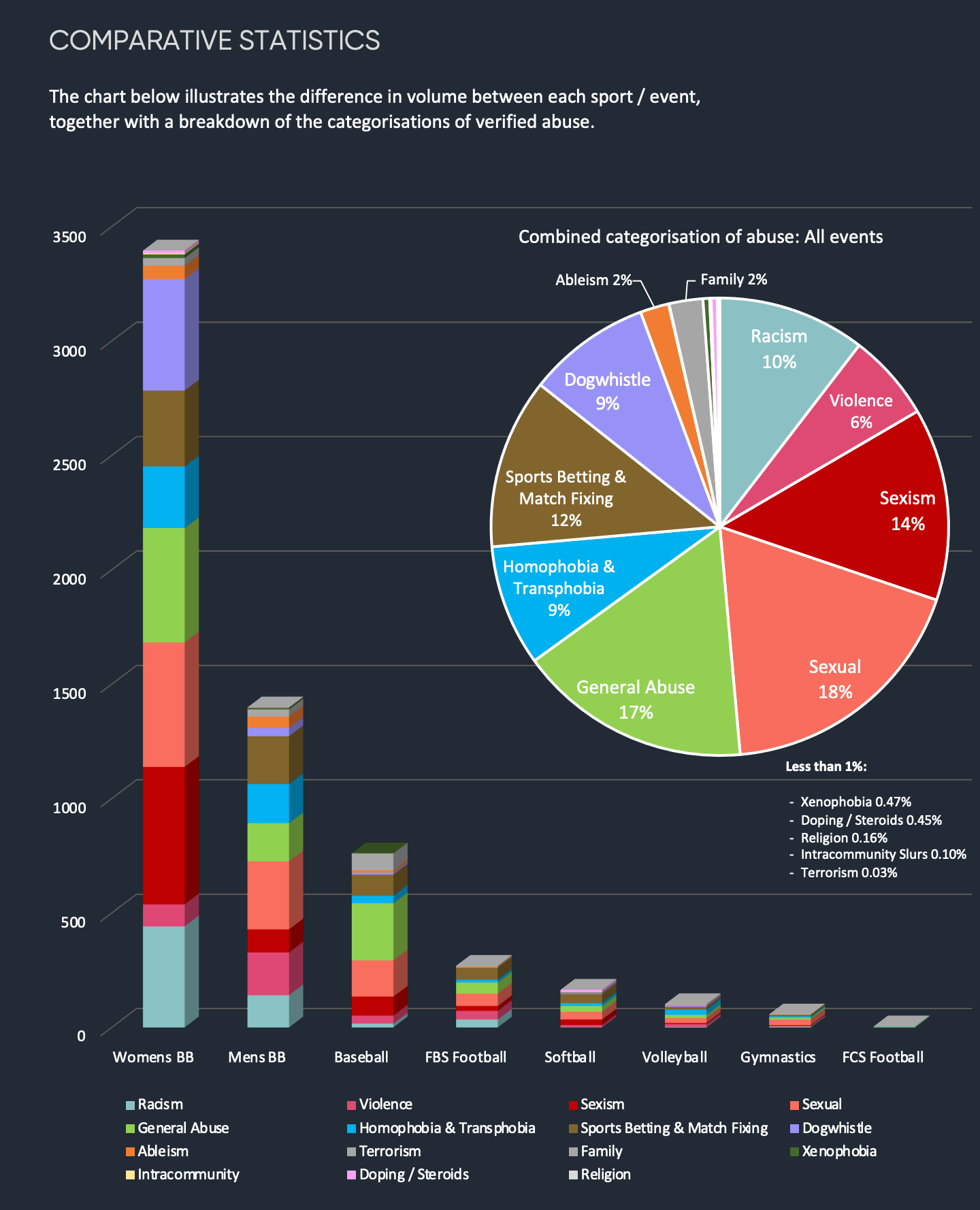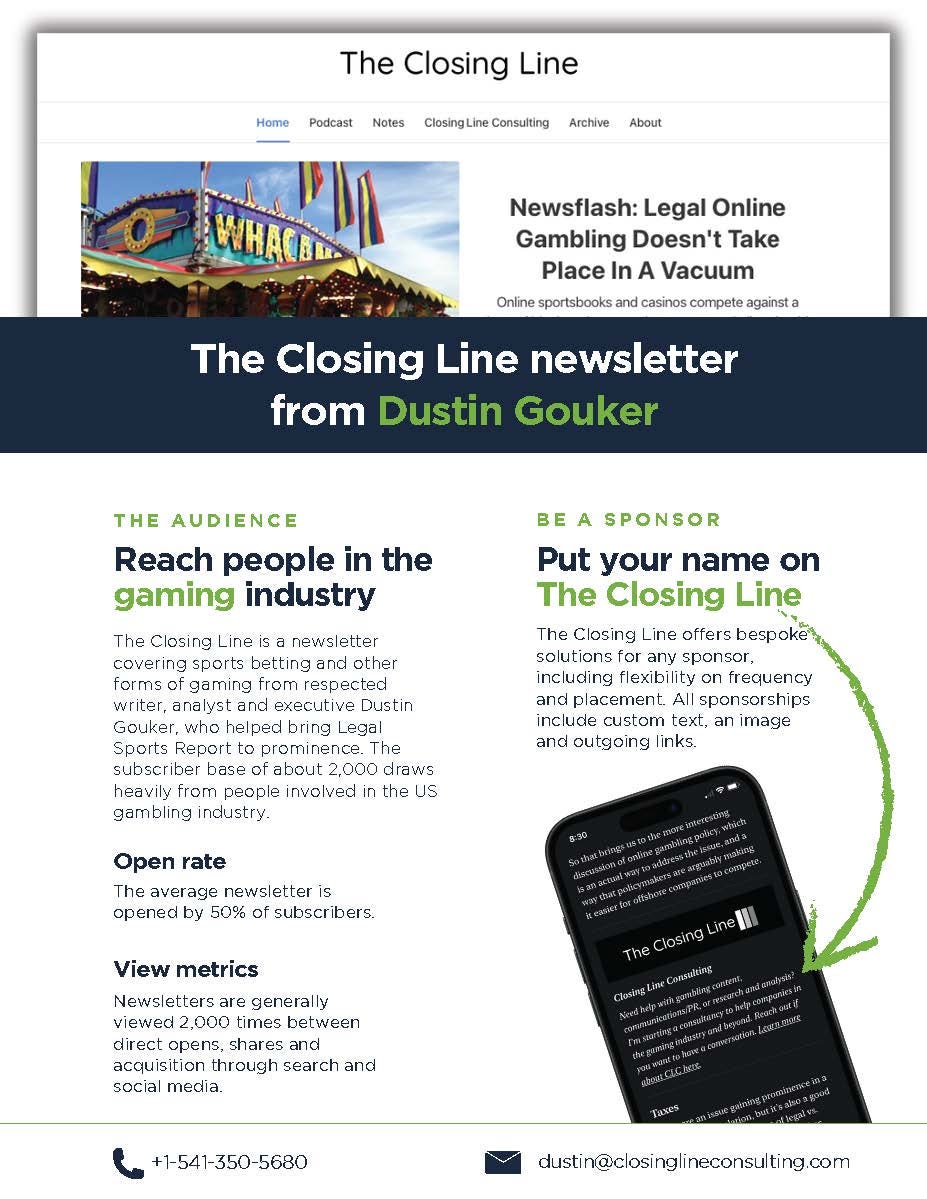The Takeaway: Gambling Is Only A Part Of Online Abuse Of Athletes
TCL will offer a take/analysis of something in the US gambling space in The Takeaway every Thursday.
One of the major points of hand-wringing around the expansion of US sports betting has been athlete abuse. There have been a number of stories saying that athlete abuse on social media is up dramatically because of gambling.
But most of those stories have been based largely on anecdotal evidence. Of course many of us have seen examples of this with our own eyes, and those stories are real. And there’s no doubt that the abuse has increased with increased gambling.
But it was still hard to quantify, at least until a new study commissioned by the NCAA tackled the subject of online abuse more generally.
And while that study revealed gambling is a big piece of social media abuse of athletes, it’s also far from the only factor in a very complex subject. The topline number was that 12% of all abuse was directly attributable to sports betting; however, the study indicates that there is likely overlap with sports betting and other motivators for abuse.
Closing Line Consulting
Need help with gambling content, navigating the North American gaming industry, communications/PR, or research and analysis? I have a consultancy to help in gaming and beyond. Reach out if you want to have a conversation. Learn more about CLC here.
What the NCAA study said about gambling
Here is some of the most pertinent information provided in the study related to gambling:
“12% of all abuse was related to sports betting, with more than 740 instances. As betting markets increased, so did the prevalence of harassment, with 19% rates in men's basketball and football. Some abuse flagged in other categories indicated that the posts were betting-related.”
“The March Madness Championships contributed 73% of the detected Sports Betting & Match-Fixing related content across all covered Championships. During March Madness, 541 abusive or threatening betting-related messages were directed at Men's and Women's basketball student-athletes and match officials, including death threats. Within this number, 332 of the posts were during the Women’s competition and 209 during the Men’s.”
It’s also important to note that the study doesn’t include direct messages, only open-source data. The majority of the study’s findings on gambling are found below (or here, on page 13).
Lots of abuse that’s not about gambling or overlaps
Here is a tremendous chart from the study that visualizes the types of abuse and the athletes targeted by sport:
I’ve believed for a while — again with little data — that online abuse (in general and of athletes) is a function of underlying problems in society and social media (especially X/Twitter). And I believe gambling exacerbates that problem, but is only part of a larger problem. The above chart confirms a lot of those priors for me.
None of this is meant to downplay gambling’s role in all of this. One person making a death threat to a player or coach because of gambling is one too many.
But athlete abuse is a complex matrix consisting of the world we live in, unprecedented access to athletes, and a lack of moderation in social media. Gambling adds some gasoline to the fire.
Another sidenote on abuse related to gambling
It’s not possible to attribute abuse specifically to regulated sports betting vis a vis other means of sports gambling. But it’s easy to surmise that while legal sports betting is the main impetus for abuse, offshore sportsooks, fantasy pick’em/parlay apps and sweepstakes sportsbooks are all part of it as well.
Many fantasy apps offer parlays/pick’em that can include the performances of college athletes. And you can definitely bet on college sports and props offshore and with sweeps. Whether you think these things are legal or not is kind of beside the point for this discussion, because they are capable of eliciting the same types of behavior/abuse.
So, again, if we’re looking to assign blame, 100% of it should not go to the regulated market, even though it’s taking the brunt of it. (This is related to my recent minipodcast, if you care to take a listen.)
What should happen next
There’s certainly no easy fix. But here’s what the NCAA would like to see:
Beyond ensuring student-athletes have access to essential learning resources and mental health support, the NCAA is advocating for social media platforms to address the root of the problem by more proactively identifying and removing abusive content directed at student-athletes.
The second part is clearly something that needs to happen, and it would be nice if the companies behind the biggest social media platforms helped to push this forward.
Sports betting companies also advertise on and use Twitter/X quite frequently. It would be great if they worked together to ask the company for its attention on this issue.
BetMGM, for its part, is a partner of X, including BetMGM odds appearing on the sports tab of the app. BetMGM’s relationship with the social media platform would be a good entry point for effecting change in trying to limit abuse of athletes, especially as it relates to gambling.
The Closing Line is now five days a week!
TCL is going to a regular publishing schedule:
Monday, The Early Line: A look ahead and a look back at what’s going on in gambling, in a short, digestible format.
Tuesday, The Current: A short piece on something new in the space. Think a startup, a product, a development in the market.
Wednesday, The MiniPod: A super short podcast, often just me, sometimes with guests!
Thursday, The Takeaway: What you read today. My take on something in the gambling industry, i.e. the backbone of what The Closing Line has been since its inception.
Friday, The Cashout (paywalled): Market insights on what’s happening in North American sports betting, online casinos, and beyond. I am going to paywall this post every week.
As always, thanks for your support by subscribing and reading my work.
For sponsorship inquiries, email dustin@closinglineconsulting.com.







